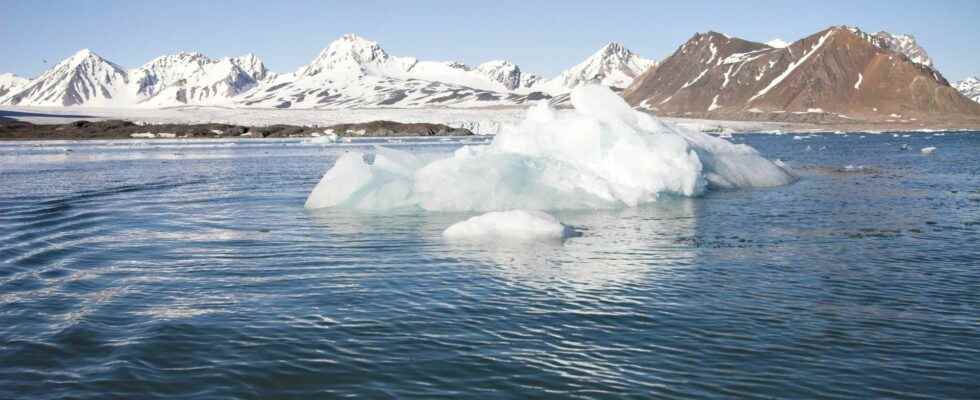Until now, it was estimated that the Arctic was warming two to three times faster than the rest of the planet. But a new study has just changed that: it actually heats up four times faster.
Since 1970, Amplification Arctic (AA), the ratio between the Arctic climate change and those in the rest of the world, continues to increase. And it continues today: while the amplification factor was estimated between 2 and 3 until today, a new study published in the journal Geophysical Research Letters shows that it actually reaches 4. This means that the Arctic is warming four times faster than the rest of the planet! “People usually average all models and assume that the whole is more reliable than any single model. We show that the average does not work in this case”, said Petr Chylek, first author of the study and climatologist at Los Alamos National Laboratory.
Two key moments, in 1986 and 1999
The researchers also showed that the evolution of AA was marked by two key stages, in 1986 and 1999. Abandoned stages by most of climate models. Although the study formally identifies the origin of the first, for the second it is more complicated. “We attributed the first step to increasing concentrations of carbon dioxide and other pollutants in theatmospherebecause several models do it correctlyexplained P. Chylek, but we believe that the second step is due to climate variability because none of the models can reproduce the second step. »
Everything would have been done by loops of feedbacks : because of warming, less sea ice forms, which modifies the albedo of the pack ice and tends to warm the Arctic even more. The same applies to water vapour, which is more present whereas Earth is warming, which is a powerful greenhouse gas and therefore tends to warm the region and the planet even more. But in the future, this trend may reverse, but not for a good reason: if all the arctic sea ice is meltingand in the worst-case scenario this would happen before 2050, then there is no longer the ice-albedo feedback.
Reading ideas for the summer with Futura?
To celebrate the start of the holidays, we offer you the Mag Futura at the preferential price of 15 € instead of 19 €, i.e. a reduction of 20% !
What is Mag Futura?
- Our first paper journal of more than 200 pages to make science accessible to as many people as possible
- 4 major scientific questions for 2022, from the Earth to the Moon
- Home delivery*
*Special offer valid until July 19. Delivery is made in France (excluding metropolitan France), Switzerland, Belgium.
Interested in what you just read?
